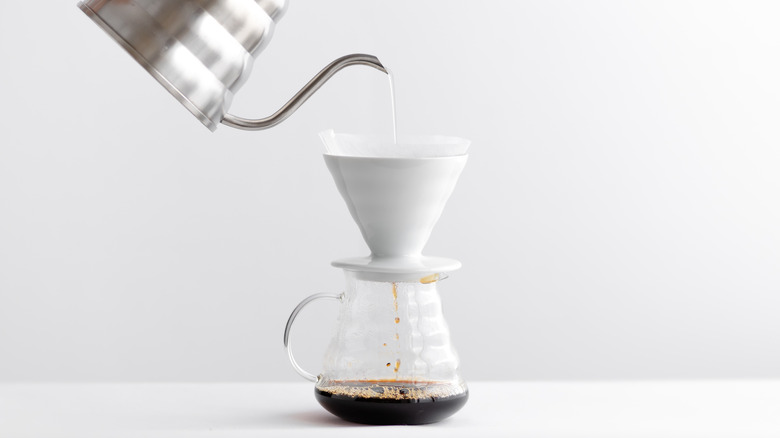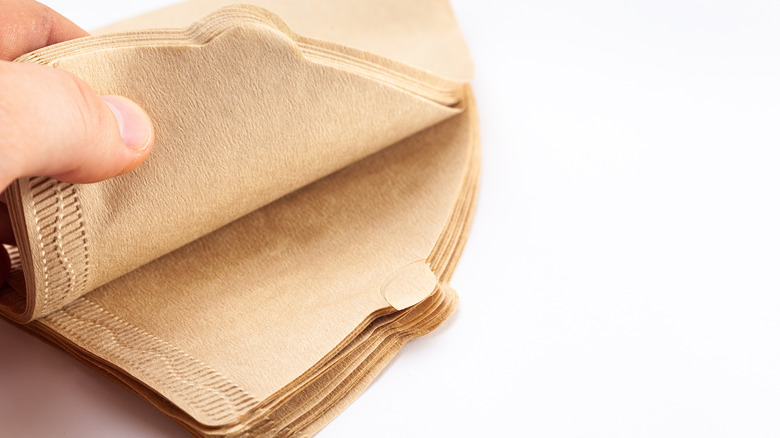Should You Avoid Buying Bleached Coffee Filters?
Coffee is the second most widely consumed beverage in the U.S. — behind only water, reports Perfect Brew. A natural stimulant thanks to its caffeine (Healthline reports that an eight-ounce mug offers between 102 and 200 milligrams) it's clear why coffee is part of so many people's morning routines. While all sorts of coffee brewing methods exist, drip coffee tends to be the most popular brewing method at home. Yet, there's one point of contention among home brewers and that's whether or not bleached coffee filters should be used.
Coffee machines like the Italian Moka or French press have built-in filters, however, when it comes to drip and pour-over coffee machines, filters are a must. Usually made of paper (although more sustainable options do exist), these disposable sieves allow coffee to flow through them while trapping coffee grounds so that they don't end up in your morning cup of joe. But, to whom do we owe the ingenious invention?
A German housewife by the name of Melitta Bentz is credited for revolutionizing how drip and pour-over coffee is brewed. According to Coffee Affection, Bentz patented a paper coffee filter in 1908 after she was displeased with the bitter taste offered by other mediums like hard-to-clean cloth filters. Interestingly, blotting paper was originally used to craft the paper filters, but crepe paper has since become the norm.
Though brilliant white filters tend to be the default filter option, negative claims against bleached filters have caused many to reevaluate their choices.
Unbleached filters may be more sustainable but can compromise taste
Brewing the perfect cup of coffee relies on a few key elements like fresh grounds, distilled water, and — believe it or not – good quality coffee filters. The question is, which filters result in a better-tasting java: bleached or unbleached?
Basically, bleached coffee filters are exactly what they sound like, they've been whitened with either a touch of chlorine or through a process called oxygen-bleaching. Although there were previously concerns in the 1980s that they could negatively affect health, Perfect Daily Grind confirms that the filters have since been accepted as safe. However, due to more processing, they also tend to cause more of an environmental impact in contrast to unbleached filters.
Despite the fact that unbleached filters may sound like a great substitute, these chlorine-free filters may have drawbacks when it comes to taste. According to Bean Ground, many say that they result in papery-tasting notes, even after the filters have been rinsed. This is why KitchenAid recommends opting for bleached versions that are more eco-friendly, such as those labeled "oxygen-bleached" or "dioxin-free." For an even more sustainable solution, reusable metal filters can be utilized indefinitely and won't impact flavor — just be wary of using finely ground coffee.

